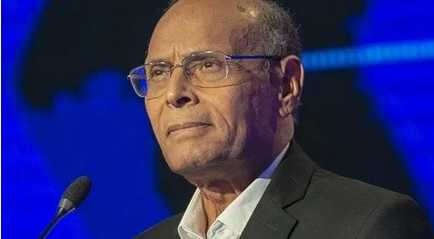
28 April 2022; MEMO: Tunisia could be saved if President Kais Saied was impeached, and presidential and parliamentary elections were held, former President Moncef Marzouki said yesterday.
"Saied's impeachment, reopening dissolved institutions, arranging a transition phase based on the constitution, changing the electoral law, and holding presidential and legislative elections overseen by an independent commission, are the bailout recipe for Tunisia," Marzouki said on Facebook.
Calling for a "new national unity government," the former leader stressed that it must be established on "three priorities: the economy, the economy, and then the economy."
"All this, of course, under the banner of a Glorious Revolution Constitution," he added, warning that otherwise, efforts would "continue to be a waste of time, and Tunisia will sink."
In recent days, Marzouki warned that Saied had "lost his legitimacy for the second time," adding that he would forge the upcoming elections after "dismantling the foundations of the democratic state."
Saied has held nearly total power since 25 July when he sacked the prime minister, suspended parliament and assumed executive authority citing a national emergency.
He appointed a prime minister on 29 September. In December, Saied announced that a referendum will be held on 25 July to consider 'constitutional reforms' and elections would follow in December 2022.
The majority of the country's political parties slammed the move as a "coup against the constitution" and the achievements of the 2011 revolution. Critics say Saied's decisions have strengthened the powers of the presidency at the expense of parliament and the government, and that he aims to transform the country's government into a presidential system.
On more than one occasion, Saied, who began a five-year presidential term in 2019, said that his exceptional decisions are not a coup, but rather measures within the framework of the constitution to protect the state from "imminent danger".
In early February he dissolved the Supreme Judicial Council, leading many to believe that he is tightening his grip on power and leaving little hope for a free and fair elections to take place, as the move leaves little division between the judiciary and the state.




